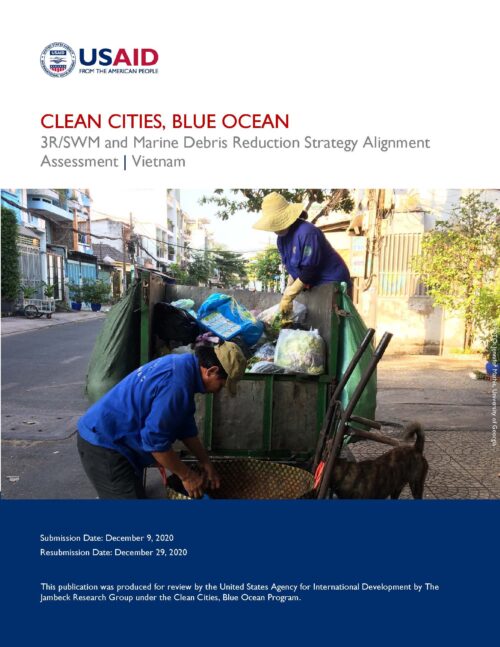CCBO 3R/SWM and Marine Debris Strategy Alignment Assessment – Vietnam
To inform CCBO’s approach, the program has produced this 3R/SWM and Marine Debris Reduction Strategy for Vietnam to highlight the ways in which CCBO can support existing marine debris strategies and to provide recommendations for increased impact.
